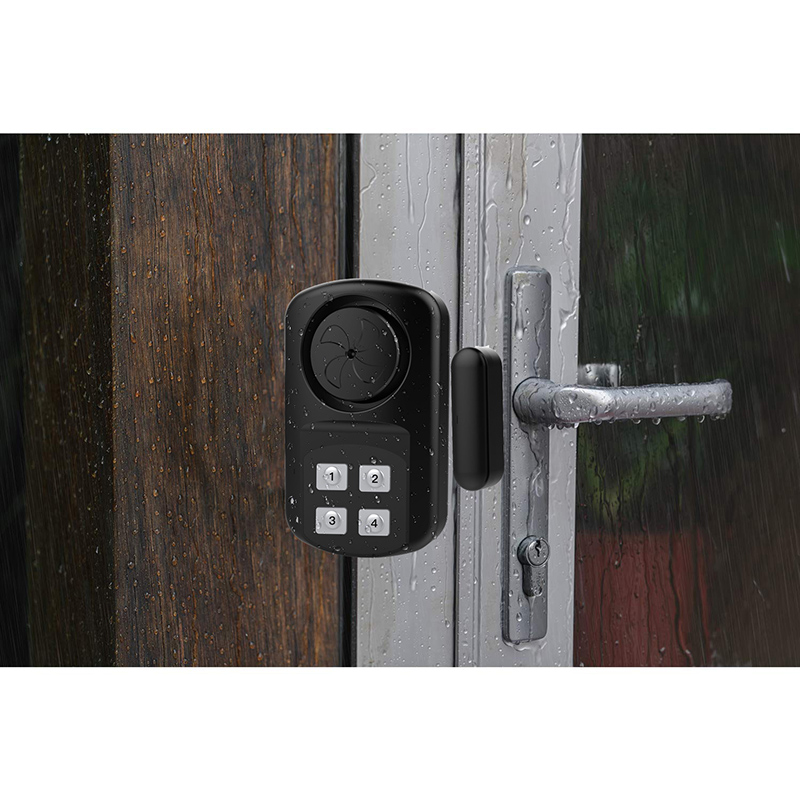An alarm system is just one tool in the business security tool chest, but it’s an important one. While it may seem that you can install just a basic alarm and it will scare off intruders, that’s not necessarily the case.
Think of the last time you heard a car alarm. Did it even phase you? Did you call the police? Did you notice anyone else heading toward the sound to investigate? Likely, you and everyone around you has grown so accustomed to the sound of car alarms that you just ignore it. The same can be true in populated areas when a building alarm sounds. If your office location is more remote, there’s the chance no one would even hear it. That’s why alarm system monitoring can be critical in protecting your property and assets.
In a nutshell, it is exactly what it sounds like: an alarm system that is monitored, typically by a company that charges for the service. For a small business, the basic coverage of a monitored alarm system commonly includes detection of intrusion and alerting authorities.
Once armed, these systems use sensors to detect if a door or window has been opened, if a window has been broken, or if there is motion within (and sometimes outside of) the building. These sensors trigger both the alarm and whatever alerts have been set up (to a monitoring company or to your cell phone). The system is either hardwired or wireless, and may include a cellular backup in case wires are cut or internet connection is lost.
Beyond this, systems can include many types of sensors, various levels of alerts, and integration with other security systems and smart office technology. For many small businesses, these extras may not be necessary. However, if you’re in a high-risk industry or area, you may need to budget for what will best enhance the security of your business. It is important to understand your security needs and your budget so that you can select the system and vendor that is the best fit.
If your budget is limited, you may need to consider installing your own security system. For the most part, the equipment you need to arm your business against intruders is readily available online. A no-fee system basically means it includes only the equipment – the installation and monitoring are your responsibility.
Saving money is definitely the upside to this approach. Your system will most likely be wireless and installation can be fairly straightforward. The challenge with a self-monitoring approach is that all security alerts will come to you; most systems do this via your mobile phone. You’ll need to be available to check into the cause of alerts 24/7, and you’ll then be responsible for contacting authorities if needed. Because monitoring is necessary to make your alarm system an effective security tool, you need to consider if this is the area you really want to cut costs. It’s also important to factor in the value of your time and realistically consider your availability to check into all alerts.
One option is to start with a system you can install yourself but that comes from a vendor that also offers monitoring services. That way, if you find self-monitoring is not a good fit, you can upgrade to their professional monitoring services.
To find vendors that may have budget-friendly options, consider companies that provide residential services. Many also offer alarm systems and monitoring for small-to-medium businesses. The Home Alarm Report recommends Abode as an option for self-monitoring systems with the potential to upgrade to professional monitoring services at competitive pricing. SimpliSafe is also recommended in this report as a cost-effective vendor.
If you know you want professional monitoring services, there are many options to choose from. Keep these factors in mind if cost is an issue:
Equipment. There are many options so it is important to know what you need and understand how your alarm system and monitoring fit in with your overall business security protocol.
Installation. Self vs. professional. Hardwired systems will require professional installation and some more traditional companies, such as ADT, require the use of their installation and maintenance services.
There are many choices when it comes to equipment for your system and some offer features that extend your system to cover more than intrusion detection. It may be important to consider your wholistic security and smart office needs to understand where your alarm system fits in and you may want to work with a vendor that offers integrated security solutions.
As we’ve become more accustomed to smart homes, smart office features are also gaining popularity. Some alarm equipment companies, like ADT, offer smart office features such as the ability to lock/unlock doors or adjust lighting remotely from a smartphone app. You can also control the thermostat, small appliances or lights. There are even systems with protocols that automatically turn on lights when someone uses a key fob or code to enter a building.
Consider getting quotes from multiple vendors and even comparing options for different levels of service so you can best assess what fits your budget and meets your needs.
How reliable is the vendor’s equipment — is it sensitive enough and strong? Be sure to read customer reviews.
What is the level of customer support? How do you contact them and what are their hours? What is included and what services generate additional fees? (Again, read customer reviews.)
Know how equipment is estimated: Is it included in the installation fees? Are you purchasing it outright or leasing?
Assess what you really need and don’t pay for extras. However, if you do need additional features to address security risks then budget accordingly to protect your business.
Remember, a monitored alarm system is just one aspect of business security. You may want to consider vendors that can meet all of your security needs, including access control, video surveillance and fire alarm systems. Learn more in our Office Security Guide 2019.
Editorial Disclosure: Inc. writes about products and services in this and other articles. These articles are editorially independent – that means editors and reporters research and write on these products free of any influence of any marketing or sales departments. In other words, no one is telling our reporters or editors what to write or to include any particular positive or negative information about these products or services in the article. The article’s content is entirely at the discretion of the reporter and editor. You will notice, however, that sometimes we include links to these products and services in the articles. When readers click on these links, and buy these products or services, Inc may be compensated. This e-commerce based advertising model – like every other ad on our article pages – has no impact on our editorial coverage. Reporters and editors don’t add those links, nor will they manage them. This advertising model, like others you see on Inc, supports the independent journalism you find on this site.
Post time: Jun-11-2019




